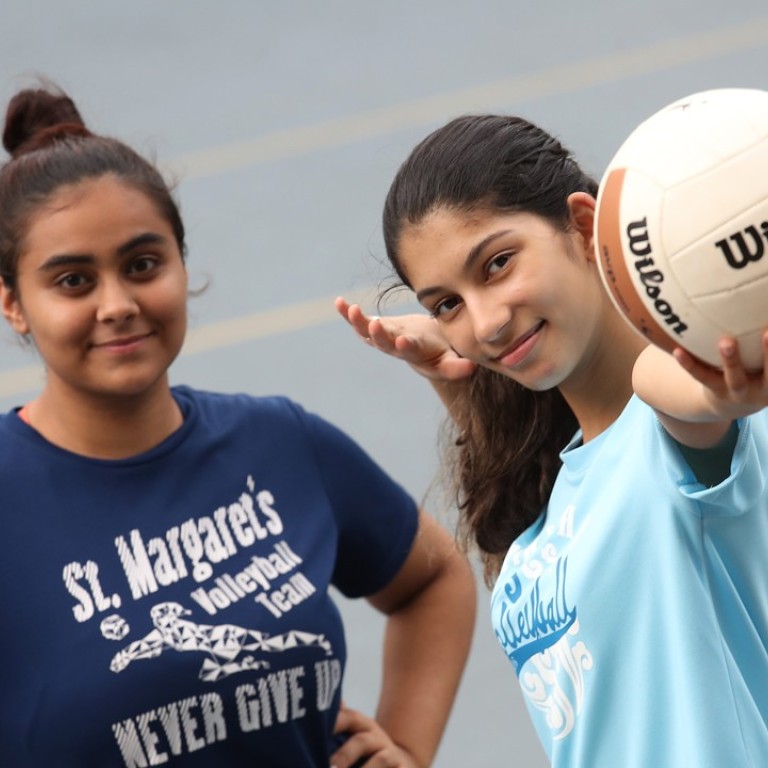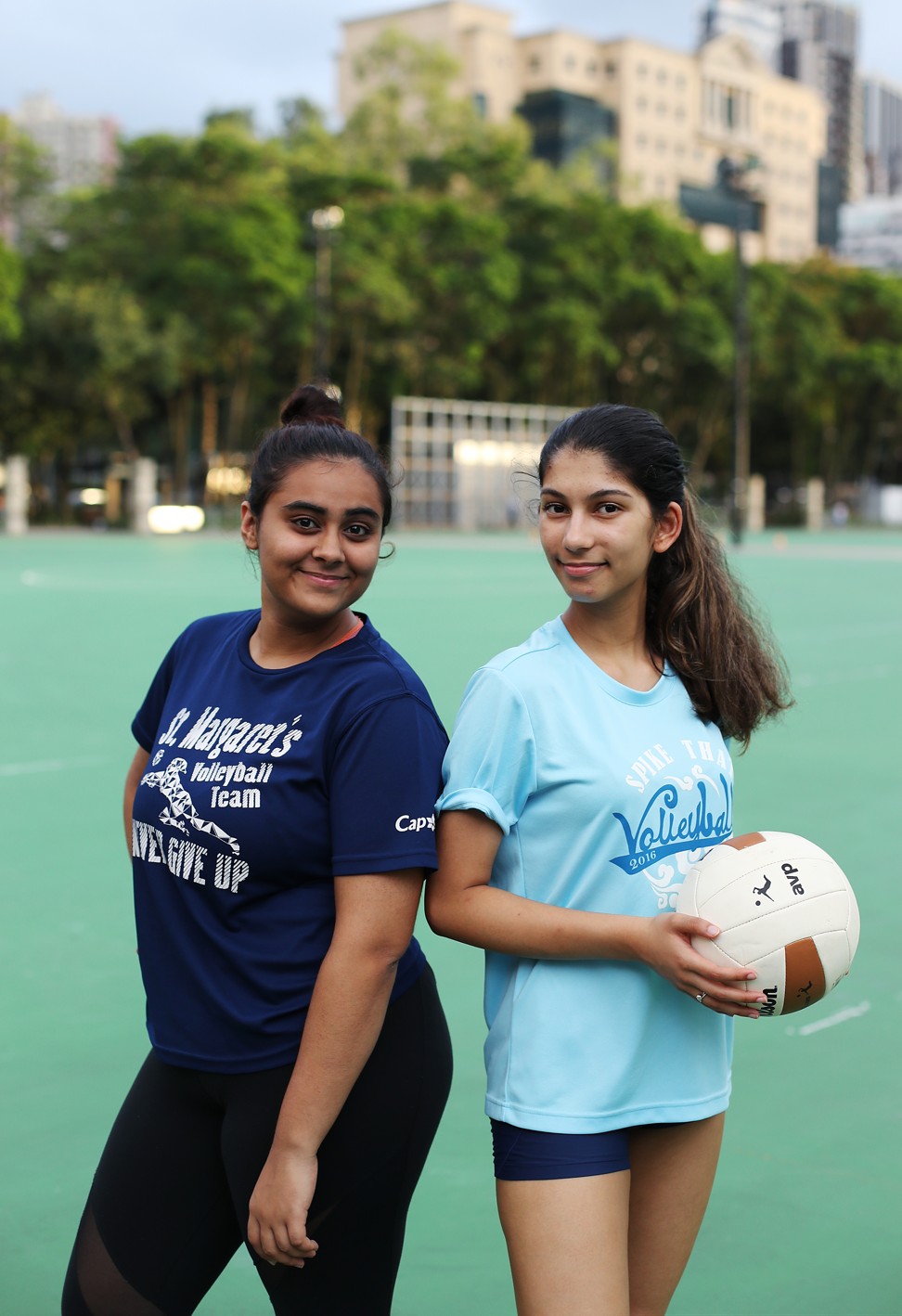
Hong Kong asylum seekers get volleyball coaching as teens help ‘connect with the community’
Project is brainchild of high school pupil 16, who moved to city two years ago
Asylum-seeking families in Hong Kong have enjoyed a summer of free volleyball coaching thanks to a highly motivated group of international students seeking to “connect with the community”.
The families – predominantly from Pakistan, Syria and parts of Africa – were coached throughout July by the International Volleyball Academy based at Hong Kong International School (HKIS).
The scheme was the brainchild of HKIS pupil Naina Mishra, 16, whose team offered lessons to about 50 asylum seekers as part of a collaboration with charity Christian Action Hong Kong.
Meet the 17-year-old American student helping refugees in Hong Kong learn English
Mishra, who lives with her family in Stanley but is originally from Mumbai, moved to Hong Kong from Singapore just two years ago.
She said she realised she could use her passion for volleyball, which has enabled her to play with adults on university teams and the South China Athletic Association, to help those less fortunate than her and her classmates.
“Volleyball works well because it is a team sport, and if you do not rely on your teammates then the ball will not go over,” she explained.
“You need everyone to feel included and empowered to do their best.”
Mishra described the initial sessions as “very chaotic” and even “quite stressful”. But over time she realised that formal instruction “didn’t matter” compared with participants’ enjoyment.
“One four-year-old girl just wanted to play ‘catch’ with me,” she said. “Everybody was just laughing and running for the ball. It was all just for fun.”
Asylum seekers in Hong Kong tend to live on the fringes of society, often facing a lengthy application process with the Immigration Department that can last years.
During that period, they are not permitted to work, and they receive very basic financial support from the government: HK$1,500 a month for housing, HK$1,200 for food as supermarket coupons, HK$300 for utilities and HK$230 for transport.
The city’s acceptance rate for refugees, at 0.6 per cent, is one of the lowest in the developed world; the global average is about 43 per cent.
You need everyone to feel included and empowered to do their best
Those who are granted refugee status have to be resettled in a third country, as Hong Kong does not accept them permanently.
Mishra said she would support asylum seekers having a legal right to work during their stay in Hong Kong, adding she enjoyed learning about their backgrounds during her coaching sessions.
“There was an older man from Syria, and he used to be an engineer there, but he can’t work in Hong Kong,” she recalled.
“Many asylum seekers have skills that cannot be utilised here. Another one of the fathers was actually helping us a lot to coach our sessions.”
As a non-profit group, the academy primarily offers the opportunity for international students to play volleyball. Participants pay the academy between HK$30 and HK$100 per two-hour session depending on the number of participants.
Mishra, whose parents are investment bankers, uses the students’ fees to pay for the courts and coaching, before reinvesting any surplus income to offer the refugees lessons for free.
Who, really, are Hong Kong’s ethnic minorities? No policy can work without understanding
“I have had helpers working for my family, and I’ve seen how they sometimes have to travel very far to socialise or play sport on their one day off each week,” she said.
“These lessons would be a quick way to get active.”
“A lot of people my age do not know how to merge their hobbies with helping the community,” she added. “You can do something like volleyball. You can just take on something you are passionate about. It is a good way to connect with the community.”


